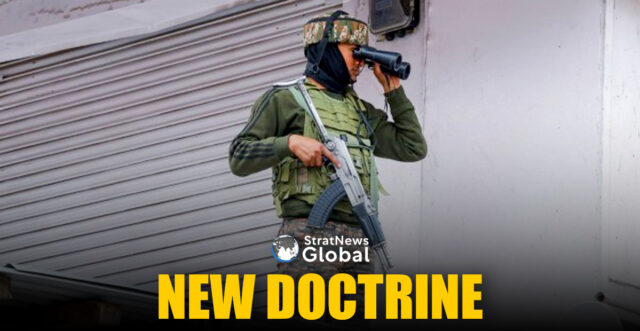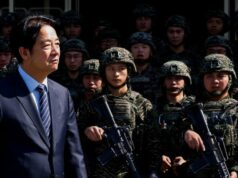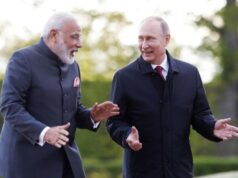When Pakistani terrorists murdered 26 Hindu tourists in Pahalgam, Kashmir, in April 2025—identifying them by religion before shooting them in cold blood—India’s response didn’t come from the skies.
Unlike the 2019 Pulwama attack, where Indian jets bombed terror camps in Balakot within days, New Delhi chose a different battlefield: diplomacy, economics and international pressure.
This shift isn’t retreat; it’s a recalibration. India is crafting a long-term counterterrorism doctrine that moves beyond kinetic retaliation to target Pakistan where it hurts most—its global reputation, financial lifelines, and diplomatic standing.
The Pulwama suicide bombing that killed 40 CRPF personnel triggered immediate and forceful retribution. India launched airstrikes inside Pakistani territory, and a diplomatic blitz followed. The world backed India. France led a UN resolution to blacklist Jaish-e-Mohammad chief Masood Azhar. The U.S., UK, and even Russia backed India’s right to self-defence and even offered to mediate. Pulwama was framed not just as an attack on Indian forces, but on global peace and order.
In contrast, the Pahalgam killings—an explicitly sectarian massacre of unarmed civilians—were met with international murmurs rather than outrage. France, Germany and the EU condemned the attack, but largely in bland terms. The U.S. and UK issued formulaic condolences urging “restraint,” carefully sidestepping any mention of Pakistan or Islamist extremism.
Only Russia, Japan and Iran offered meaningful diplomatic solidarity, with Tokyo’s defence minister expressing “full support” for India’s anti-terror efforts. And this time, it is Iran that has offered to mediate.
Geopolitics has evolved. In 2019, Western capitals were eager to court India as a strategic counterweight to China. Condemning Pakistan-based terrorism was low-hanging fruit. In 2025, the calculus is more complex. With Afghanistan unstable and China’s regional influence growing, Pakistan remains a key player. Western reluctance to alienate Islamabad—especially under Trump’s second term—has dampened the moral clarity once extended to New Delhi.
There’s also growing discomfort in global capitals about openly siding with India on religiously charged issues. The Pahalgam victims were targeted for their Hindu identity—a fact that makes many in the West, grappling with their own culture wars, nervous. It’s easier to condemn attacks on soldiers than to navigate the moral terrain of faith-based massacres.
Initial U.S. reactions only reinforced Indian frustration. Secretary of State Marco Rubio bizarrely urged “both sides” to de-escalate, even as the bodies were still being counted. Vice President JD Vance warned India against retaliation, acknowledging Pakistani involvement but calling for restraint. In New Delhi, such rhetoric felt like gaslighting.
Behind closed doors, India pushed back hard. External Affairs Minister S. Jaishankar challenged Washington’s equivocation, making it clear that silence—or neutrality—would damage the trust built over decades.
By midweek, the tide began to turn. State Department spokesperson MS Bruce revised the U.S. position, stating that the President had expressed “strong support” for India’s fight against terrorism. The equivocation was gone. Defence Secretary Pete Hegseth, speaking India’s language, declared that “India has the right to defend itself,” calling the killings a “heinous terrorist attack.”
India’s pressure campaign had worked—not just in Washington, but globally. The message: if you won’t call it terrorism when it targets civilians, your credibility is hollow.
Instead of retaliatory strikes, India adopted a multi-pronged strategy:
- Water diplomacy: New Delhi has moved to suspend portions of the Indus Waters Treaty, challenging one of the foundational agreements between the two countries.
- FATF pressure: India is lobbying for Pakistan’s re-listing on the Financial Action Task Force (FATF) grey list, citing the same terror financing routes that enabled the Pahalgam attackers.
- Economic isolation: India is urging multilateral institutions to halt economic aid and investment in Pakistan, framing terrorism as not just a security issue, but an economic one.
This isn’t inaction—it’s strategy. Airstrikes deliver instant catharsis; financial and diplomatic attrition delivers lasting impact.
The contrast between Pulwama and Pahalgam underscores a grim truth: when soldiers or citizens of the West die, it’s labelled terrorism. When tourists are gunned down for their faith, it’s called an “incident.” This double standard exposes not just geopolitical hypocrisy, but also the limits of international solidarity.
India, for its part, is learning to respond on its own terms. By refusing to be baited into predictable retaliation—and by leveraging global systems to isolate its adversary—it is signalling a doctrinal shift. One that prioritises endurance over escalation, and justice over spectacle.
India is no longer playing the grateful junior partner. Like all major powers, it will look to its own interests first.
Meanwhile, GHQ Rawalpindi can sweat a little, not knowing when the next Indian strike is coming from, and in what form.
In a career spanning three decades and counting, Ramananda (Ram to his friends) has been the foreign editor of The Telegraph, Outlook Magazine and the New Indian Express. He helped set up rediff.com’s editorial operations in San Jose and New York, helmed sify.com, and was the founder editor of India.com.
His work has featured in national and international publications like the Al Jazeera Centre for Studies, Global Times and Ashahi Shimbun. But his one constant over all these years, he says, has been the attempt to understand rising India’s place in the world.
He can rustle up a mean salad, his oil-less pepper chicken is to die for, and all it takes is some beer and rhythm and blues to rock his soul.
Talk to him about foreign and strategic affairs, media, South Asia, China, and of course India.





